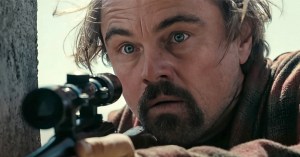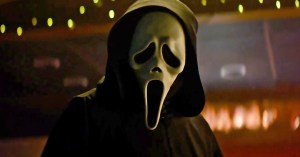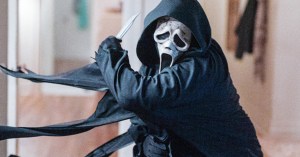Rachel Weisz’s Best Movies
In this week's Total Recall, we take a look back at the most acclaimed work of the star of The Light Between Oceans.
Summer is just about over, and the arrival of this weekend’s The Light Between Oceans — a period romance starring Michael Fassbender, Alicia Vikander, and Rachel Weisz — offers elegant proof. In honor of this year’s exodus from our annual buttery blockbuster season, we decided to dedicate this column to a fond look back at some of the brightest critical highlights from the Oscar-winning Ms. Weisz’s estimable filmography. It’s time for Total Recall!
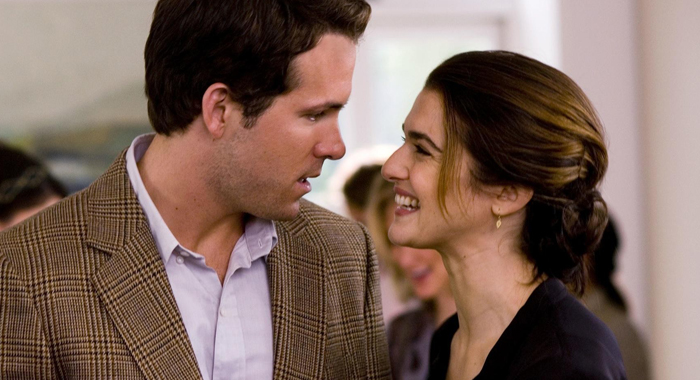
A sort of How I Met Your Mother for the big screen, Definitely, Maybe stars Ryan Reynolds as an about-to-be-divorced dad whose daughter (Abigail Breslin) demands to hear how her parents met — and who responds by concocting a romantic mystery of sorts, leading her (and the audience) on a rom-com odyssey starring Reynolds alongside the kid’s potential moms: Elizabeth Banks, Isla Fisher, and Rachel Weisz. Setting aside the absurd beauty of that putative gene pool, this bubbly hit has loads of charm, and easily wooed the majority of critics despite a rather ordinary list of narrative ingredients. “Is this movie the best romantic comedy of the year? Maybe not,” admitted the Miami Herald’s Connie Ogle. “Do you walk out with a smile on your face? Definitely.”
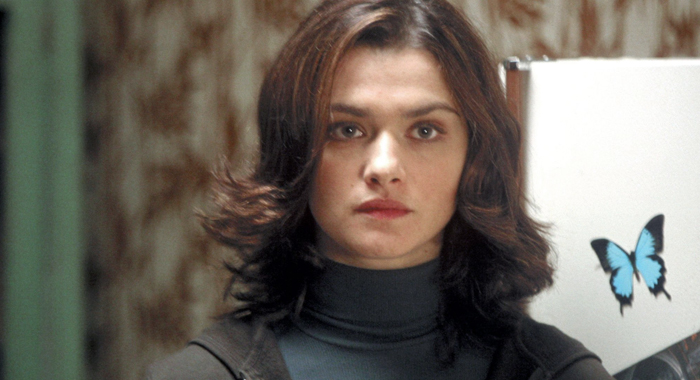
John Grisham will never be regarded as a quote-unquote Serious Author, but his legal thrillers can make for great paperback fun — and a few of them have been turned into pretty good movies, too. For example, here’s 2003’s Runaway Jury, a boilerplate legal thriller enlivened by a crackerjack cast that included John Cusack, Gene Hackman, Dustin Hoffman, and (surprise!) Rachel Weisz. All that star wattage didn’t add up to a major box office hit, but between the talent on display and director Gary Fleder’s deft hand with all the assorted courtroom shenanigans, most critics were duly impressed; as Lisa Schwarzbaum wrote for Entertainment Weekly, “Although the twists are pulpy and the legal foundations feel wildly porous, Fleder, a practiced hand at TV-cop stuff and movie thrills, makes the film a faster, more agile bundle of entertainment than the book.”
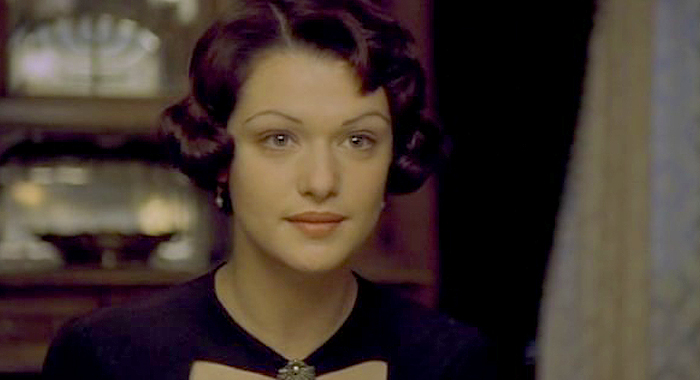
This list should offer ample proof that Rachel Weisz is about more than sweeping, romantic period epics. But if that’s the genre that comes to mind when you think of her, there are more than a few excellent reasons why — and Sunshine, a sweeping, romantic period epic from director/co-writer István Szabó, is among them. Here, Weisz helps anchor an ensemble cast for a story following three generations of life in a Hungarian Jewish family (each of which features Ralph Fiennes in a different role), unfolding from the turn of the 20th century into the aftermath of the 1956 Hungarian Revolution. The movie’s three-hour length and Szabó’s fondness for melodrama annoyed a handful of critics who couldn’t get into it, but for others, the end result was well worth the investment. “This is a movie of substance and thrilling historical sweep,” wrote Roger Ebert, “and its three hours allow Szabó to show the family’s destiny forming and shifting under pressure.”

A great cast isn’t always enough to make a movie worth viewing, but it gives a director a pretty good head start — and when that cast includes Michael Caine, Harvey Keitel, and Rachel Weisz, you’ve just about sealed the deal even if your film includes a handful of head-scratching interludes that include floating monks, dozens of cowbells, and a guy dressed up as Adolf Hitler. Oddball ingredients aside, writer-director Paolo Sorrentino’s Youth offers some fine actors an opportunity to play well-rounded characters grappling with getting older and contemplating the loss of opportunity and the consequences of their choices. Calling it “Quixotic, idiosyncratic, effortlessly moving,” Kenneth Turan of the Los Angeles Times wrote, “It’s as much a cinematic essay as anything else, a meditation on the wonders and complications of life, an examination of what lasts, of what matters to people no matter their age.”

Director/co-writer Larysa Kondracki searched for nearly a decade before securing funding for The Whistleblower, a fact-based drama about an ex-cop (Weisz) who took a job with defense contractors training police in Bosnia and Herzegovina, only to discover the company was running a sex trafficking ring — and the UN wasn’t doing anything about it. Fired after pursuing her investigation, she took her findings to the media, prompting promises of a full-scale UN inquiry… which, based on the real-life public record, may or may not have made much of a difference in the end. Not the kind of movie that necessarily makes a person feel good about the human race, in other words, but definitely the type of role that can bring out the best in a performer — and according to critics, Weisz delivered. As Bob Mondello wrote for NPR, “It’s a thriller sobering enough in its graphic portrayal of forced violence against women that it would be tough to watch if not for the controlled fury Weisz brings to her performance as a down-to-earth avenging angel.”
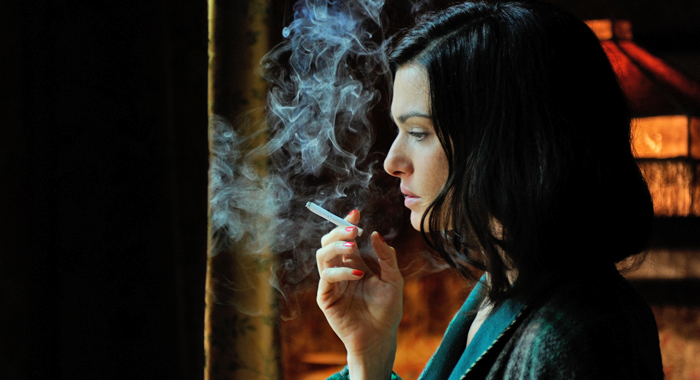
Director Terence Davies drew from distinguished source material when he decided to adapt Terence Rattigan’s play The Deep Blue Sea — and he honored it by rounding up an outstanding cast, led by Rachel Weisz as a woman drifting through a comfortable yet passionless marriage and Tom Hiddleston as an ex-Royal Air Force pilot whose thrill-seeking streak awakens her to a life of passion. The moral of the story might seem somewhat retrograde to modern viewers, but it remains heartbreakingly well-written and performed; the end result, as Jeannette Catsoulis wrote for NPR, is “A shimmering exploration of romantic obsession and the tension between fitting in and flying free.”
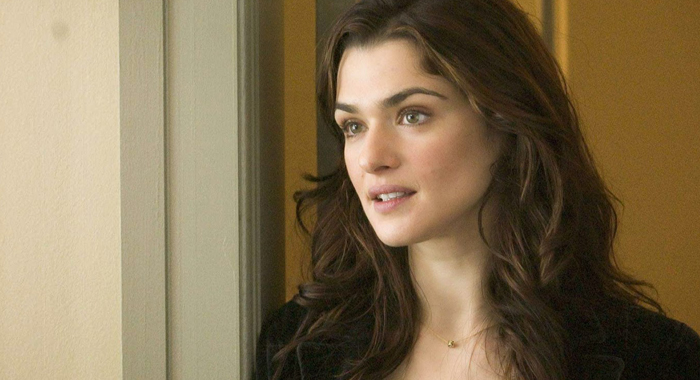
There’s no political thriller quite like a John le Carré political thriller, and The Constant Gardener presents Oscar-winning proof. Weisz took home a Best Supporting Actress Academy Award for her work in the role of Tessa Abbott-Quayle, a woman whose marriage to a British diplomat stationed in Kenya (Ralph Fiennes) comes to a sudden and tragic end — sparking an investigation that reveals startling truths about the nature of their relationship and who she really was. “This is not a movie that will shock you or thrill you or rock your world,” wrote Tom Long for the Detroit News. “Instead, it will move you, it will stick with you, it will give you pause and affect you in ways not easily described — which is something the best films always do.”
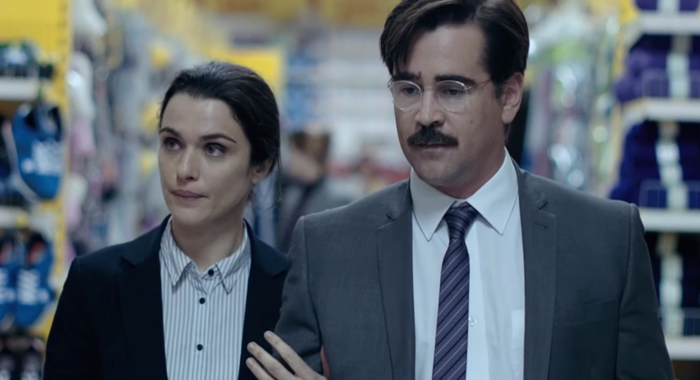
We’ve all seen countless couples fall in love onscreen, and at this point, it takes a truly special movie to raise the stakes for a relationship in any memorably meaningful way. Enter Yorgos Lanthimos’ The Lobster, which imagines a weirdly dystopian world in which lonely hearts congregate at a hotel for 45 days to find a match — and if they don’t find one, they’re magically turned into the animal of their choice. Our protagonist (Colin Farrell) chooses a lobster, and for a time, it looks like he might just end up gaining a pair of claws and spending the rest of his life in the sea; fortunately, his journey takes an unexpected turn involving a near-sighted woman (Weisz) who… well, we don’t want to spoil anything, but suffice it to say you may never look at courtship rituals the same way. “The Lobster is a droll piece of work lashed with grim humor,” wrote Stephanie Zacharek for TIME. “For every moment that makes you laugh, there may be another that leaves you with your mouth hanging open.”
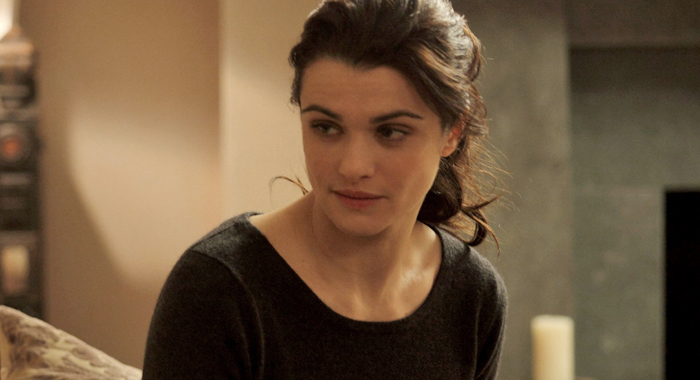
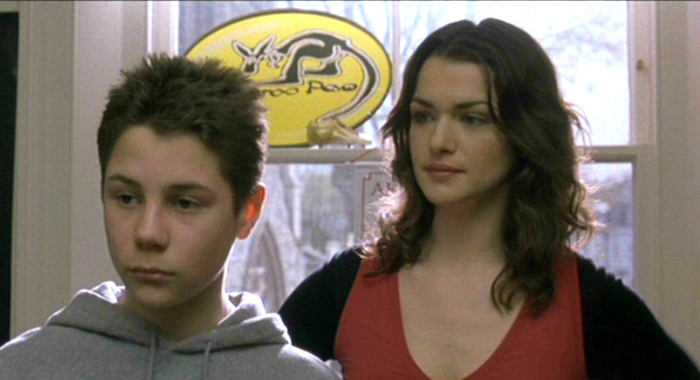
What could be better than whiling away your hours in unearned leisure, cashing royalty checks for a song you didn’t even have to write, and idly pursuing a life of serial monogamy? On the evidence of About a Boy, we’d have to answer “dating Rachel Weisz,” because that’s what ultimately cures independently wealthy layabout Will Freeman (Hugh Grant) of his terminal lack of ambition — but only, of course, after he’s lured out of his complacent solitude by an unexpected friendship with a 12-year-old boy (Nicholas Hoult) and his mom (Toni Collette). “Mainstream comedies,” argued David Edelstein for Slate, “should all be this funny and tender and deftly performed.”



